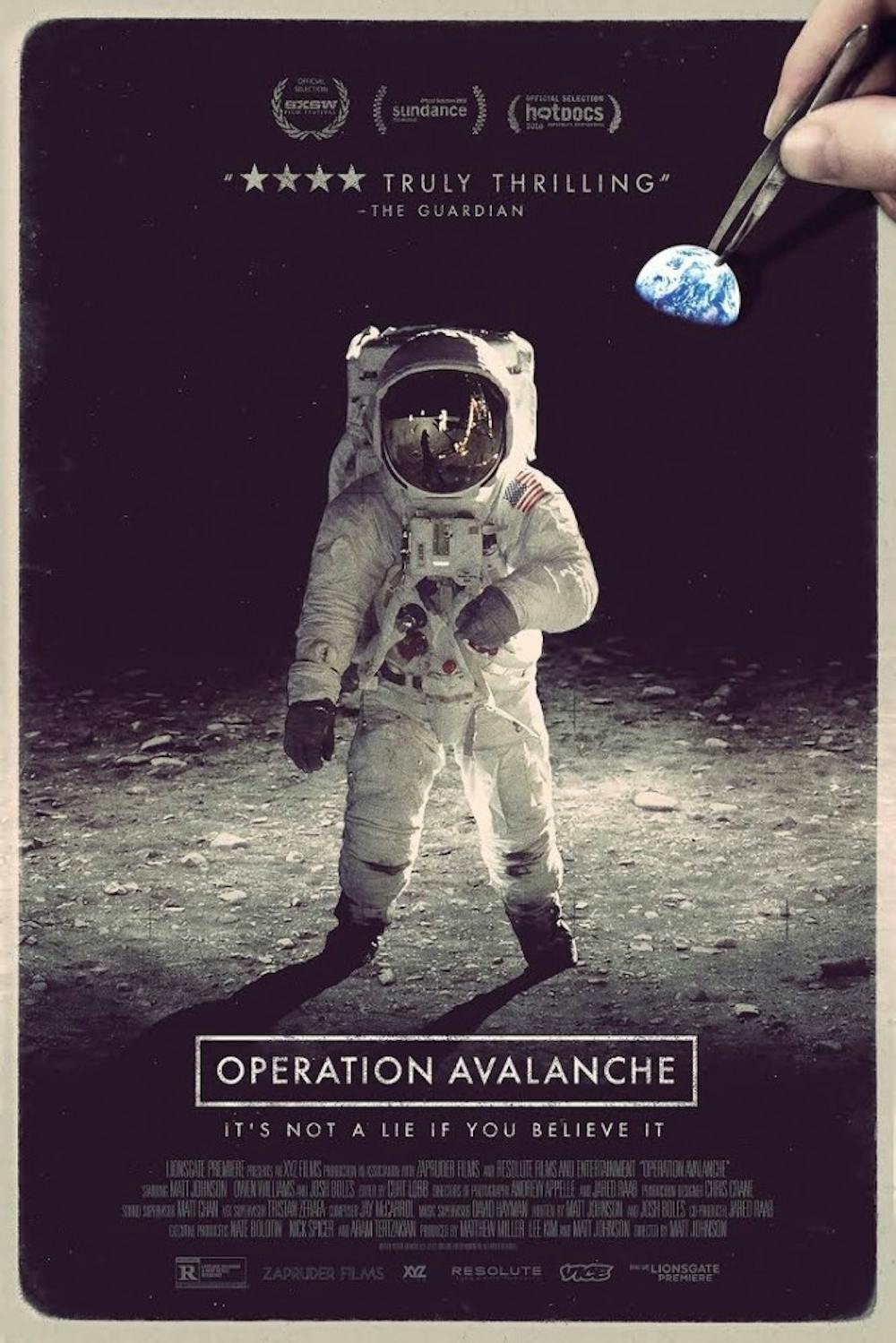One might think movies about Apollo 11 landing on the moon in the 1960s could 1) be extremely expensive to produce (Ed. note: Because recreating realistic space stuff ain’t cheap) and 2) have been done way too many times before. Operation Avalanche, however, is the first narrative, quasi– documentary that tackles both obstacles with a new, innovative twist: Secretly filming a movie inside of NASA about NASA scientists of the 1960s secretly filming a fake moon landing. Street spoke to director/actor Matt Johnson and producer Matt Miller about Operation Avalanche and their controversial filming tactics.
Street: What made you guys want to delve into this conspiracy theory about [America’s first] man walking on the moon?
Matt Johnson: As opposed to another story? We liked it because it sort of combined a lot of things we really liked. Lying, I really like movies about liars. I really like movies about people who are trying to do something impossible and people who are incredibly ambitious.
Matt Miller: And obsessed.
MJ: And obsessed! And we don’t believe the moon landing was faked, but we thought, 'Oh, if it was, the team who did that would need to have all these qualities of people that we like a lot.' And the actual footage that was put on television— that everybody in the world watched—would be, almost in a way, the greatest movie ever made. And so the story of the people who did that was really intriguing to us.
MM: Some people ask, 'Why did you make it about the moon landing and not something more pressing?' Like some people think that 9/11 was a conspiracy, that type of thing, something with a little bit more urgency. And our answer is, 'Well, there are way too many layers of politics invested in those types of conspiracies.' This one was so much safer. It was a way for us to be very critical of the C.I.A. and the United States Foreign Policy, without turning off a lot of viewers.
Street: To go now, towards the point of the production aspect of your film, how did NASA feel about you guys kind of tricking them?
MM: They just made a press comment today!
MJ: Yeah, with Wired Magazine saying they were upset with us for fooling them. I mean, it wasn't really much of a statement, but uh they didn't like that we did it. But that's obvious. I mean we had to fool them. We were students with no money and trying to make a movie about NASA. We had no other access. But, I believe that once the individuals of NASA watch our movie, they're gonna be like, 'Oh this is great! We love this!'
MM: Yeah, it's not like we're making fun of NASA or y'know—it's a love letter to NASA! And the people who took us to the moon! Even the people who appear in the movie kind of appear under a false pretense, y'know? They're not a part of the joke.
Street: How'd you get the equipment in?
MJ: We just brought out cameras.
MM: And, look, it wasn't that easy to get in. We're Canadians, so we're foreigners, so the security checks and passports. It's not like we just knocked on the door with our cameras. So, it took a lot of time to set up, but once we were there it was pretty easy to repurpose everything we were shooting for our own use.
Street: But you guys have a history of using unusual places as sets before. I know in a past documentary you guys went to high schools?
MJ: Yeah it was the same. And there we had to more or less sneak into high schools and say that we shooting something else. And there we were making a fake documentary about a school shooting. So in fact, that was a... touchier subject.
Street: Did you go in telling them that's what you were doing?
MM: Uh no, same thing! We told them that we were making a movie about bullying for our university.
MJ: I mean there is a school shooting at the end of that movie. Obviously, that was staged. We weren't gonna do that in real life in a high school. We're not THAT crazy.
Street: What advice would you give for young people who want to make documentaries?
MM: Film school. So we both did undergrad film school in Canada, which is like $4,000 a year. And that's where we all met. We started experimenting and playing around.
MJ: He made a short first out of Bottle Rocket.
MM: And the movie clearly had no money behind it and yet he was just developing his voice. I think a lot of people make the mistake of if they're going to do anything it needs to be the mega ultimate level movie with tons of money.
Street: So how exactly do you be innovative in this field right now?
MJ: I think innovation really comes from necessity. When we set out to make Operation Avalanche, we didn't start with a need to find a really new and innovative ways to tell a story. We were like, 'We have no money and we need to shoot it now, so what are we going to do? Well I guess we have to bring it to NASA. Oh, I guess you need to see this like it's a documentary and pretend that all these people are in the documentary and repurpose it later.' All the things that look, from the outside, like really smart original ideas are most of the time those things that come out of necessity.
Street: So you're saying limitations breed innovation?
MJ: All the time.
This interview has been condensed and edited. Check out the trailer for the movie below.d

